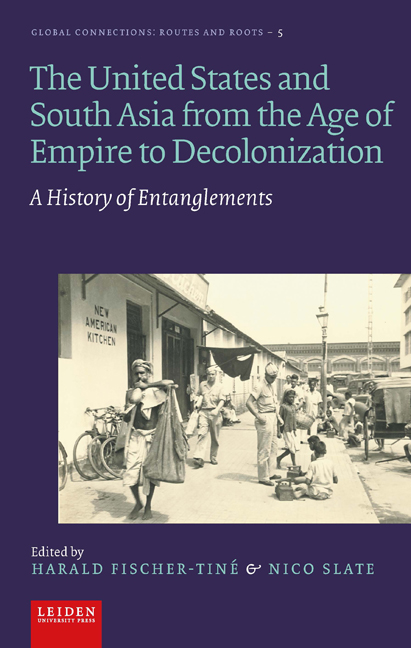 The United States and South Asia from the Age of Empire to Decolonization
The United States and South Asia from the Age of Empire to Decolonization Published online by Cambridge University Press: 07 January 2025
Abstract On May 28, 1964, Dr. Rammanohar Lohia, a prominent Socialist member of the Indian parliament, was arrested in Jackson, Mississippi, for attempting to enter a “whites only” restaurant. Lohia was not new to the United States, nor to being arrested while fighting injustice. In the summer of 1951, he spent over a month traveling across the United States, encouraging a range of audiences to take up civil disobedience in the struggle against American racism. He met with dozens of activists, intellectuals, and political figures, including Walter Reuther, Pearl S. Buck, Norman Thomas, Eleanor Roosevelt, and Albert Einstein. By examining Lohia's American journeys, this paper will explore the larger intersection of socialism and civil rights within and between the United States and India.
Keywords: Socialism, civil rights, African American, Cold War, Non-alignment, diplomacy
On May 28, 1964, Dr. Rammanohar Lohia, a prominent socialist member of the Indian parliament, was arrested in Jackson, Mississippi. His “crime” was attempting to enter a “whites only” restaurant. After the U.S. State Department sent an apology to the Indian Ambassador, Lohia informed reporters that both the State Department and the Indian Embassy “may go to hell.” American leaders should apologize “to the Statue of Liberty and to three billion citizens of the world.” Lohia's math is revealing. Those “three billion citizens,” far more than the population of India, represented all “dark” or “colored” people—terms of racial solidarity pioneered by the African American intellectual and antiracist activist, W.E.B. Du Bois. Beginning in the late nineteenth century, Du Bois had articulated a transnational and transracial conception of “colored solidarity.” Lohia embraced such an expansive antiracist politics. When he explained that he courted arrest in Mississippi in order to show his support for the “revolution against color inequality,” Lohia meant not just the American civil rights movement, but related struggles against racism and imperialism throughout the world.
Lohia's transnational understanding of American racism mirrored the global lens with which he viewed Indian politics. Born in Fazibad District in the United Provinces in 1910, Lohia studied in Bombay, Benares, and Calcutta before traveling to Europe to advance his education. After completing his Ph.D. in Berlin, he returned to India in 1933, eager to contribute to the anticolonial struggle. He was soon arrested.
To save this book to your Kindle, first ensure [email protected] is added to your Approved Personal Document E-mail List under your Personal Document Settings on the Manage Your Content and Devices page of your Amazon account. Then enter the ‘name’ part of your Kindle email address below. Find out more about saving to your Kindle.
Note you can select to save to either the @free.kindle.com or @kindle.com variations. ‘@free.kindle.com’ emails are free but can only be saved to your device when it is connected to wi-fi. ‘@kindle.com’ emails can be delivered even when you are not connected to wi-fi, but note that service fees apply.
Find out more about the Kindle Personal Document Service.
To save content items to your account, please confirm that you agree to abide by our usage policies. If this is the first time you use this feature, you will be asked to authorise Cambridge Core to connect with your account. Find out more about saving content to Dropbox.
To save content items to your account, please confirm that you agree to abide by our usage policies. If this is the first time you use this feature, you will be asked to authorise Cambridge Core to connect with your account. Find out more about saving content to Google Drive.